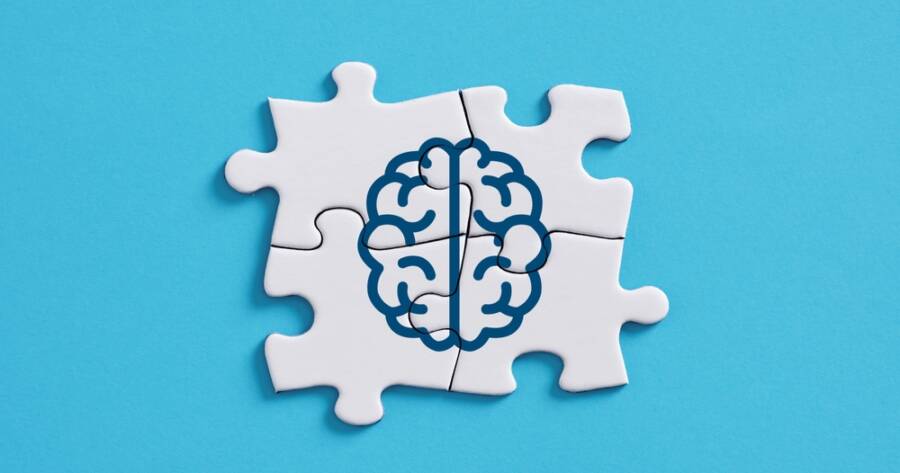Schizophrenia is a complex mental health condition that can significantly impact an individual’s thoughts, emotions, and behaviors. Early recognition of its symptoms may lead to improved management options, though outcomes vary widely among individuals. By learning about the potential early warning signs, you can better understand when to seek professional support for yourself or a loved one. Let’s explore the subtle indicators of schizophrenia, emphasizing the importance of early intervention as well.
What Is Schizophrenia?
Schizophrenia is a chronic mental health disorder that affects how a person perceives reality. It is characterized by a combination of symptoms, including hallucinations, delusions, disorganized thinking, and impaired daily functioning. The condition typically develops during late adolescence or early adulthood but can manifest earlier or later in some cases.
Its exact cause remains unknown, though research suggests a mix of genetic, environmental, and neurobiological factors contribute. Recognizing schizophrenia early can be challenging, as its symptoms often overlap with other mental health conditions. Furthermore, the disorder’s presentation can vary widely from person to person, making it essential to approach diagnosis with caution and rely on the expertise of mental health professionals.
Early Warning Signs of Schizophrenia
While schizophrenia does not usually appear suddenly, its early stages may include subtle changes in behavior, emotions, or cognitive function. These signs are often referred to as the prodromal phase, which can precede full-blown symptoms by months or even years. Recognizing these early signs is not diagnostic but may prompt a visit to a healthcare provider for evaluation.
1. Social Withdrawal
One of the earliest and most common indicators is a tendency to withdraw from social interactions. Individuals may start avoiding friends, family, or activities they once enjoyed. They might seem distant, disinterested, or detached, which could be mistaken for depression or general introversion.
2. Decline in Functioning
A noticeable drop in performance at school, work, or other daily responsibilities can occur during the prodromal phase. Individuals might struggle with tasks that were previously manageable, showing signs of confusion, poor concentration, or a lack of motivation.
3. Unusual Thoughts or Suspicion
People in the early stages of schizophrenia may begin to express unusual beliefs or exhibit paranoid thinking. For example, they might feel they are being watched or followed, even without evidence. Such thoughts may seem mild at first but could intensify over time.
4. Changes in Mood or Emotional Responses
Flattened emotional expression, inappropriate reactions, or sudden mood swings can signal an underlying issue. An individual might appear unusually apathetic, or their responses to situations may seem exaggerated or out of place.
5. Difficulty Thinking Clearly
Cognitive changes such as trouble focusing, memory lapses, or disorganized thinking patterns are often noted in the early stages. Speech may become tangential or hard to follow, with individuals jumping from topic to topic without clear connections.
Common Symptoms as Schizophrenia Progresses
If left untreated, early signs may progress into more defined symptoms characteristic of schizophrenia. These symptoms are usually grouped into three categories:
1. Positive Symptoms
- Hallucinations: Experiencing sensory perceptions without an external stimulus, such as hearing voices or seeing things that aren’t there.
- Delusions: Firmly held beliefs that are not grounded in reality, such as feeling persecuted or believing one has special powers.
2. Negative Symptoms
- Reduced emotional expression or inability to feel pleasure.
- Withdrawal from social activities and lack of motivation.
- Neglect of personal hygiene and basic self-care.
3. Cognitive Symptoms
- Impaired decision-making abilities.
- Difficulty understanding information or using it effectively.
- Trouble maintaining attention or staying engaged in conversations.
The Importance of Early Intervention
Identifying potential early signs of schizophrenia does not guarantee that an individual will develop the disorder, as many symptoms overlap with other conditions like anxiety, depression, or even substance abuse. However, seeking help early—even if symptoms are mild—can be crucial in improving the individual’s quality of life.
Why Seek Help Early?
- Comprehensive evaluation: Mental health professionals can perform thorough assessments to differentiate between schizophrenia and other possible conditions.
- Management strategies: Early intervention may provide access to therapies, medications, and support systems that can help manage symptoms and reduce the likelihood of severe episodes.
- Support networks: Engaging with healthcare providers early allows individuals and families to build a strong support system, which can improve coping mechanisms and overall well-being.
How to Approach Someone Showing Symptoms
If you suspect someone you care about may be exhibiting early signs of schizophrenia, it can be challenging to know how to address the issue. Here are some tips:
- Start with empathy: Approach the person with understanding and avoid being judgmental or confrontational.
- Express concern: Share specific observations, such as “I’ve noticed you’ve been withdrawing from friends lately” rather than making generalized statements.
- Encourage professional help: Suggest visiting a healthcare provider for a check-up, framing it as a way to improve overall well-being.
- Be patient: Recognize that the individual may resist help initially, and be prepared to offer continued support over time.
Understanding and Support Lead to Better Outcomes
Schizophrenia remains a complex condition that requires a nuanced and compassionate approach. Recognizing potential early signs can make a significant difference in seeking timely support, though it’s essential to avoid jumping to conclusions without a professional evaluation.
By fostering understanding, reducing stigma, and encouraging early intervention, we can better support individuals who may be facing the challenges of this disorder. Remember, every journey with schizophrenia is unique, and outcomes depend on a range of factors, including access to appropriate care and ongoing support.

